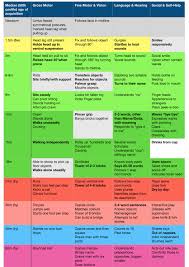
Unlocking Developmental Potential: Nurturing Growth in Children
The Importance of Developmental Milestones in Children
Childhood is a time of rapid growth and development, with children reaching various milestones along the way. These developmental milestones are key markers that indicate a child’s progress in areas such as physical, cognitive, social, and emotional development.
From learning to crawl and walk to speaking their first words and forming friendships, each milestone achieved is a building block for future learning and success. Monitoring these milestones is crucial for parents and caregivers as they provide valuable insights into a child’s overall development.
Early identification of developmental delays or challenges can lead to timely interventions that can help children reach their full potential. This is why regular check-ups with healthcare providers and developmental screenings are recommended to track a child’s progress and address any concerns early on.
It’s important to remember that every child develops at their own pace, and there is a wide range of what is considered normal. However, if there are persistent delays or regression in reaching milestones, it’s essential to seek professional guidance to support the child’s development.
Encouraging play, exploration, and interaction with others are great ways to promote healthy development in children. Providing a supportive environment where children feel safe to learn and grow is key to nurturing their skills and abilities.
By celebrating each milestone achieved and offering encouragement along the way, parents can help their children build confidence and resilience as they navigate the exciting journey of development. Remember, every step forward is a reason to cheer!
7 Essential Tips to Nurture Children’s Development Across All Aspects
- Encourage curiosity and exploration in children to foster their cognitive development.
- Provide opportunities for social interaction to support children’s emotional and social development.
- Offer a variety of age-appropriate toys and activities to stimulate physical development.
- Read to children regularly to enhance their language and literacy skills.
- Set consistent routines and boundaries to promote healthy development.
- Celebrate achievements, no matter how small, to boost children’s self-esteem.
- Be patient and provide positive reinforcement during the learning process.
Encourage curiosity and exploration in children to foster their cognitive development.
Encouraging curiosity and exploration in children is a powerful way to nurture their cognitive development. By stimulating their natural sense of wonder and encouraging them to ask questions, children are able to engage with the world around them in a meaningful way. Through exploration, children learn to problem-solve, think critically, and make connections between different concepts. This active engagement not only boosts their cognitive skills but also instils a lifelong love for learning and discovery. So, let’s inspire our little ones to explore, question, and embrace the endless possibilities that come with curiosity!
Provide opportunities for social interaction to support children’s emotional and social development.
Providing opportunities for social interaction is crucial in supporting children’s emotional and social development. Through interactions with peers, siblings, and adults, children learn important skills such as communication, empathy, cooperation, and conflict resolution. These experiences help them build relationships, understand emotions, and develop a sense of belonging within their community. Encouraging social interactions from an early age fosters positive social behaviours and lays the foundation for healthy emotional development in children.
Offer a variety of age-appropriate toys and activities to stimulate physical development.
Providing a diverse selection of age-appropriate toys and activities is essential for stimulating physical development in children. By offering toys that encourage movement, coordination, and strength-building, children can enhance their gross and fine motor skills. Activities such as crawling through tunnels, playing with balls of different sizes, or engaging in outdoor games not only keep children active but also promote balance and spatial awareness. These experiences help children develop their physical abilities in a fun and engaging way, laying the foundation for a healthy and active lifestyle.
Read to children regularly to enhance their language and literacy skills.
Reading to children regularly is a wonderful way to enhance their language and literacy skills. By exposing children to a variety of words, sounds, and stories from an early age, you can help them develop a strong foundation for communication and learning. Through reading together, children not only expand their vocabulary but also improve their listening skills, concentration, and imagination. It’s a special bonding experience that fosters a love for books and sets the stage for a lifelong journey of discovery through reading.
Set consistent routines and boundaries to promote healthy development.
Setting consistent routines and boundaries is a crucial tip for promoting healthy development in children. Establishing regular schedules for activities such as mealtimes, bedtime, and play helps children feel secure and understand what to expect, fostering a sense of stability and predictability. Clear boundaries provide structure and guidance, teaching children about limits and acceptable behaviour. By creating a nurturing environment with consistent routines and boundaries, parents can support their child’s emotional well-being and help them develop important life skills such as self-discipline and responsibility.
Celebrate achievements, no matter how small, to boost children’s self-esteem.
Recognising and celebrating even the smallest achievements in a child’s development is a powerful way to boost their self-esteem and confidence. Whether it’s taking the first step, solving a puzzle, or expressing themselves creatively, acknowledging these milestones shows children that their efforts are valued and appreciated. By praising their accomplishments, we instil in them a sense of pride and motivation to continue learning and growing. This positive reinforcement not only strengthens their self-esteem but also encourages them to tackle new challenges with enthusiasm and resilience.
Be patient and provide positive reinforcement during the learning process.
In supporting a child’s development, it is crucial to be patient and offer positive reinforcement throughout their learning journey. By showing patience, understanding, and encouragement, caregivers can create a nurturing environment that fosters growth and confidence in children. Acknowledging their efforts and achievements with positive feedback helps build their self-esteem and motivates them to continue learning and reaching new milestones. Remember, progress takes time, so staying patient and providing positive reinforcement are key elements in helping children thrive and succeed in their developmental journey.


